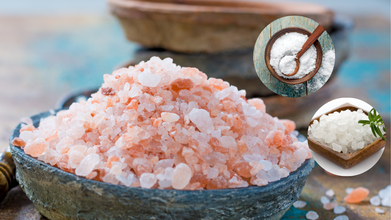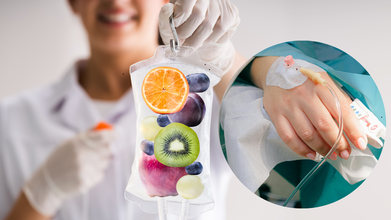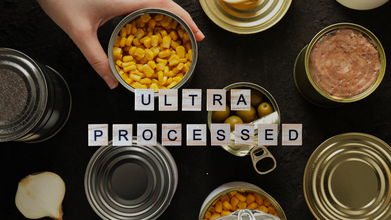- Health Conditions A-Z
- Health & Wellness
- Nutrition
- Fitness
- Health News
- Ayurveda
- Videos
- Medicine A-Z
- Parenting
- Web Stories
Why Chocolate, Not Just Love, Makes Your Heart Skip A Beat

Image credit: Canva
Imagine sitting across from your lover, with your heart pounding or skipping a beat. An intoxicating sensation that many have attributed to love. But what if chocolate and not romance was the true culprit behind that fluttering heartbeat? Science reveals that chocolate, particularly dark chocolate, has a very interesting impact on our heart health and emotional well-being, sometimes even causing physical sensations similar to love.
Heart palpitations—the feeling that your heart skips or races—can be startling, even when harmless. While these sensations can be triggered by stress, caffeine, or even hormonal changes, chocolate also plays a role. Rich in unique compounds, chocolate can stimulate the heart, creating sensations that mimic the excitement of love.
Chocolate is derived from the Theobroma cacao tree, whose name aptly translates to "food of the gods." Its beans are rich in bioactive compounds, including caffeine, theobromine, and phenylethylamine, which form the basis of its heart-affecting properties.
- Caffeine: Present in varying amounts in chocolate, caffeine acts on the heart by inhibiting some chemicals that trigger muscle relaxation. This results in stronger contractions and a faster rate, which is like the excitement of love-making.
- Theobromine: A chemical present only in chocolate, theobromine can stimulate the central nervous system and cause minor elevations in heart rate, which can contribute to palpitations in sensitive people.
- Phenylethylamine Chemically similar to amphetamines, this compound is associated with feelings of love and euphoria.
Dark chocolate stands out as a healthier option compared to its milk and white counterparts. It contains higher concentrations of cocoa, amplifying its health benefits. Dark chocolate is rich in antioxidants that improve arterial blood flow, reduce clot risks, and decrease LDL cholesterol. These would contribute to cardiovascular health and might help prevent heart disease. The magnesium and tryptophan in dark chocolate improve mood by raising serotonin levels, mimicking the feel-good hormones experienced during love. On the downside, dark chocolate's caffeine is also one that can make heart palpitations occur, especially for those who react sensitively to stimulants.
Also Read: Are You Sleeping In The Best Position For Your Heart's Health?
What is the Role of Caffeine in this Relationship?
Among chocolate's famous compounds is one known as a stimulant-certainly quite popular in coffee, tea, soda, energy drinks, and of course, chocolate itself. Though moderate quantities are associated with positive health factors, excessive dosing causes palpitations, anxiety, and erratic rhythms.
A 2016 study concluded that there is no concrete evidence associated with moderate caffeine consumption toward the cause of heart palpitations; in fact, in some instances, it may even support heart health. Another study conducted in 2018 found no robust relationship between caffeine and heart palpitations. Although this is the case, a 2004 study concluded that chocolate was consumed in relation to palpitations in patients diagnosed with such episodes.
When Does Eating Chocolate Becomes Dangerous?
Chocolate is a safe indulgence for most people, but those with heart conditions or who are sensitive to caffeine should be cautious. A small ounce of dark chocolate can contain as much caffeine as a small cup of coffee, enough to cause palpitations in susceptible individuals.
The Cleveland Clinic recommends individuals with heart issues or poor health limit their caffeine intake, including from chocolate, to avoid exacerbating symptoms.
Other Culprits Behind Heart Palpitations
While chocolate might take the spotlight, it’s not the only factor causing your heart to flutter.
Medications: Certain asthma drugs, decongestants, and heart medications can stimulate abnormal rhythms.
- Hormonal Fluctuations: These will include menstruation, pregnancy, and also menopause due to temporary occurrences of hormonal levels.
- Substance Use: Some drugs may make the heart pound faster. Drugs such as those containing nicotine or amphetamines and certain 'recreational' drugs trigger erratic beats of the heart.
- Physical and Emotionally Triggers : Serious exercise and anxiety disorders often trigger palpitations.
Managing and Preventing Heart Palpitations
Most palpitations are benign, but persistent or painful episodes require medical attention.
Here are some tips on how to manage and prevent them:
- Limit caffeine and stimulant-rich foods like chocolate and energy drinks. Dehydration can worsen palpitations.
- Mindfulness techniques, yoga, and meditation can help regulate your heart rate.
- If palpitations happen frequently or are accompanied by chest pain, consult a professional.
Chocolate, with its rich history and complex chemistry, offers a sensory experience that rivals the thrill of love. Its ability to stimulate the heart and lift your spirits makes it a beloved treat worldwide. But knowing its effects on heart health ensures you can indulge responsibly.
Caffeine and Arrhythmias: Time to Grind the Data. JACC: Clinical Electrophysiology. 2018
Consumption of Caffeinated Products and Cardiac Ectopy. Journal of the American Heart Association. 2024
Caffeinated energy drink consumption among adolescents and potential health consequences associated with their use: a significant public health hazard. Acta Biomed. 2017
Pink Salt, Sea Salt, Celtic Salt: Are They Really Beneficial Or Just Some Fancy Names

Credits: Canva
Social media platforms have taught us a lot about health, but sometimes, it has also tricked us into believing things which may not be in the best interest of us. Now, we are hearing more and more about the trend of using Himalayan salt and replacing the table salt, which we would commonly use. For some, using this salt in beverage helps them lose weight. While for others, the variants like Celtic salts and seat salts are mineral-rich alternatives. However, doctors say otherwise.
What Is The Reality of Pink Salt, Sea Salt And Celtic Salt?
Celtic Salt is unrefined and non-processed salt without harsh chemicals or anti-caking agents. It naturally contains a wide array of minerals, including magnesium, calcium, potassium, zinc, and iron, in addition to sodium chloride.
While sea salt has the same mineral compounds, it is more dry in nature and has more variation in texture, from ultra-fine grains to large, and even flaky crystals.
Pink salt or Himalayan salt is a type of rock salt, which is mined from Khewra Salt Mine in Pakistan, and is known for its distinctive pink hue from trace minerals like iron and potassium. It is natural, unrefined, and is known for the mineral-rich component that it is.
However when doctors are asked whether such unrefined, raw, and mineral-rich salt should be substituted for the regular table salt, their answer is "No".
Dr Shipra Gulati, consultant physician at Sir Ganga Ram Hospital said that any form of rock salt, while rich in mineral, is associated with thyroid problems. Why? Because these salts lack iodine, which is present in common salt. Absence of iodine leads to thyroid problems, notes the World Health Organization (WHO). This is why the government of many countries have iodised the salt so thyroid issues could be prevented. When one substitutes any other salt with regular iodised salt, then the risk to thyroid, brain damage and mental retardation increases.
What About Blood Pressure?
Dr Gulati also cites examples of where people replace rock salt with regular table salt stating hypertension reasons. However, she says, "the component of sodium chloride is same in both the salts". Thus, replacing the salt will not be fruitful.
What About The Minerals?
Health guidelines by American Heart Association suggests the upper limit is 2,300 mg, which is roughly 1 teaspoon a day. Experts point out that in order to actually utilise the minerals present in other salts, one must consume more than the recommended levels of salt, as consuming just 1 teaspoon a day will not make any difference in terms of the minerals. However, if more than this amount is consumed, it could trigger high blood pressure, as sodium chloride are almost same for all the salts.
Dr Susan Cheng and Dr Evan Levine, two cardiologists, reported by Today.com noted that using too much "fancy" salts could be more detrimental to your health.
Dr Cheng says that coarser texture from rock salt, Celtic salt or sea salt and their larger crystal could make it simple to unknowingly overuse them. "The satisfying crunch makes you feel like you're using a little bit, but really you're adding a lot of extra sodium."
Dr Levine suggests: "Don't fall for the salt hype". Dr Levine also bursts health myths on TikTok and says that many people consume the alternatives for being "less processes". However, "it is sodium chloride, just like your regular salt. The so-called benefits are negligible. You are still eating salt."
IV Hydration For Vitamins Could Be Putting Your Life At Risk, According To Doctors

Credits: Canva
While more and more IV hydration spas are coming up in the US, a new study published on October 6 in JAMA Internal Medicine found that IV hydration industry operates with almost no regulation and little medical evidence to support its supposed health benefits.
The co-author of the study Dr Peter Lurie, who is the president of the Center for Science in the Public Interest told the NBC News that these businesses are operating "almost completely without evidence. As a result there is a real danger to consumers".
In the US, out of the 50 states, or 32 have some kind of rule or policy related to IV hydration services, however, only four states: Alabama, North Carolina, South Caroline and Vermont have a comprehensive oversight. These hydration spas offer pricey vitamin infusions that promise energy, detox or immune support. Apart from the lack of evidence to sustain its claim on the benefits IV hydration supposedly offers, it is also an expensive process. According to the American Med Spa Association, this industry has exploded into a $15 billion wellness industry.
Is it really worth it?
Here is what the doctors say about IV hydration:
Dr Shrey Kumar Srivastav, Senior Consultant, Internal Medicine at Sharda Hospital told Health and Me that while there is no standard frequency for IV therapy in healthy individuals, "frequent or routine use can cause vitamin toxicity or electrolyte imbalances."
Dr Prashant Sinha, Head of Emergency and Internal Medicine at PSRI Hospital, Delhi, said that for a healthy person with no diagnosed deficiency, there is generally no medical reason to receive IV supplements regularly. "Getting them too frequently can lead to nutrient overload or dependency, where the body becomes less efficient at natural nutrient absorption," he pointed out.
Both the doctors also debunk the claim that IV supplements are better than the vitamins one consumes through food. "Supplements taken orally or through food are typically safer, more sustainable, and sufficient for most people," explained Dr Srivastava.
Also Read: If You're Alone At Home And Experience A Heart Attack, Here's How You Survive: According To Doctor
Dr Sinha also clarified that IV supplements are in most cases not better than supplements consumed through food or medicines. "Whole foods provide not only individual nutrients but also fiber, antioxidants, and enzymes that support overall health. Oral supplements, when taken as prescribed and for medically confirmed deficiencies, are also effective for most people and pose far fewer risks than IV therapy," he points out.
Dr Srivastava further added that IV supplements are not superior to food or oral supplements for general wellness or weight loss. "The growing trend of using IV injections for cosmetic or slimming purposes is risky, unregulated, and can be fatal."
Lurie also said, "This is a medical system that exists largely outside of conventional medicine. We are also worried that there will be adverse effects related to this."
Alex Thiersch, the CEO of the American Med Spa Association said that many of the owners of these businesses do not realize that they are practicing medicine, however he notes, "If you are putting a needle in someone's vein, that's 100% medical practice."
War Against Ultra Processed Foods: New California Law Asks School To Phase It Out Soon

Credits: Canva
Ever since Donald Trump's administration has taken over with RFK Jr as the Health Minister, the war over ultra processed food has been declared. Now, California will phase out certain ultra processed meals over the next decade under a first-in-the-nation law signed Wednesday by Gov Gavin Newsom.
What Will This Law Do?
The first and foremost job of this law is to define what ultra processed foods are. The law seeks to define it as 'super-tasty products typically full of sugar, salt and unhealthy fats'. The law would require the state's Department of Public Health to adopt rules by mid-2028 defining 'ultra processed foods of concern' and 'restricted school foods'.
When Will The Schools Start Fading Out Foods?
The legislation requires the school to start phasing out these foods by July 2029, and districts will be barred from selling them for breakfast or lunch by July 2035. Vendors will also be banned from providing the 'foods of concern' to schools by 2032.
Jennifer Siebel Newsom and state lawmakers also signed the measure at a middle school in Los Angeles.
“California has never waited for Washington or anyone else to lead on kids’ health, we’ve been out front for years, removing harmful additives and improving school nutrition,” Newsom said in a statement. "This first-in-the-nation law builds on that work to make sure every California student has access to healthy, delicious meals that help them thrive.”
Newsom had issued an executive order earlier this year that required the Department of Public Health to provide recommendations by April on limiting harms from ultra processed foods. The Democratic governor also signed a law in 2023 that banned certain synthetic food dyes from school meals.
War Against Ultra Processed Foods
Legislatures from across the country have introduced some 100 bills or even more in the recent months to ban or require the labelling of chemicals that make up the ultra processed foods. These labeling include artificial dyes and controversial additives.
Why Is This Worrying?
Americans get more than half of their calories from ultra processed foods. This has been linked to many health problems, including obesity, diabetes, and heart diseases. However, it has still not been studied much to prove that foods directly impact these chronic health issues.
How To Define Ultra Processed Foods?
Defining “ultra processed foods” has always been a bit complicated. The most widely used system, the Nova classification developed by Brazilian researchers, sorts foods into four categories based on how much they’re processed.
In general, ultra processed foods are those that contain industrial ingredients you’d never find in a home kitchen—think additives, flavor enhancers, and preservatives. However, the line isn’t always clear. Some highly processed foods, like tofu, certain whole-grain breads, or infant formulas, can still be nutritious. Researchers continue to debate whether it’s the processing itself or the combination of sugar, fat, and salt that drives negative health outcomes.
To settle the confusion, U.S. health officials have recently begun working on a federal definition of ultra processed foods, noting that current descriptions might not fully capture which foods pose real health concerns.
© 2024 Bennett, Coleman & Company Limited

